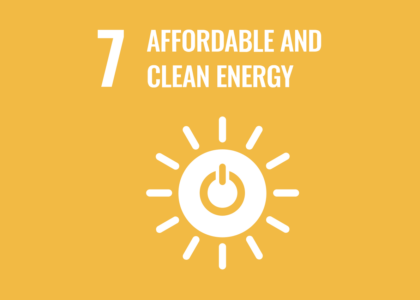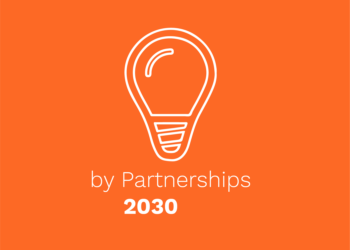The Clean Cooking Alliance (CCA) has dedicated itself to precisely this task. Using the CCA as an example, this factsheet illustrates the practical benefits and importance of MAP in the context of SDG 7.
●
Partnerships2030
Around the world, some 2.6 billion people do not have access to clean cooking technologies. In rural regions biomass is often the only available fuel. Women in particular burn wood on open fires to prepare food, and suffer from breathing in toxic smoke. Multi-stakeholder partnerships aim to bring improvements by distributing efficient stoves, for example, and expanding the use of renewable energy in rural areas.


